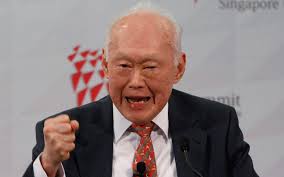People still talk about ‘the masks of leadership’—about a leader’s need to present different ‘faces’ to different audiences. Forget it. People see straight through people who are not being honest with them; they know when they are being manipulated. And people can only be genuinely inspired by the real thing—by leaders who reveals at least something of their true, authentic self.
Real leadership demands authenticity
Ram Charan, business author, coach and senior fellow at the Wharton School, argues that authenticity is at a premium when times are hard: when leaders have a difficult message to convey, it is essential that they demonstrate their integrity by sharing the real facts with colleagues—everybody finds out the truth in the end, and any attempt to gloss over unpleasant facts simply damages a leader’s precious credibility.
As Charan says, “Leaders, wherever they sit in the organization, have to demonstrate rock-solid integrity, honesty, and the ability to confront reality. The way to inspire courage and optimism in your employees is by mapping a credible path forward. If you soft-pedal bad news, they won’t trust you. Worse, they’ll miss the urgency of the situation and won’t follow you.”
Bill George, former chairman and CEO of Medtronics and co-author with Peter Sims of True North; Discover your authentic leadership, sets out five core dimensions of authentic leadership.
1. Pursuing purpose with passion: a leader’s passions demonstrate the true purpose of their leadership.
2. Practicing solid values: integrity is required of every authentic leader.
3. Leading with the heart: authentic leaders lead with their hearts as well as their head.
4. Establishing enduring relationships: people demand a personal relationship with their leaders as a guarantee of trust and commitment.
5. Demonstrating self-discipline: authentic leaders set high standards for themselves and expect the same from others.
Integrity is simply a given; you can’t be leader without it. The history of business is littered with the corpses of senior executives who thought that they could get away with misleading their colleagues, their board of directors, their shareholders and the world at large.
The more difficult route: emotional engagement
Even the most upright leaders seem sometimes to subscribe to an elitist approach, reminiscent of General Charles de Gaulle—leader of the Free French Forces during the German occupation of France in the Second World War and later President of France. De Gaulle’s leadership credo was explicitly elitist – insisting that there must be distance between a leader and the led: “There is no power without prestige, and no prestige without distance.” De Gaulle was wrong; modern leaders have to take the more difficult route, which is to engage emotionally with their colleagues and to reveal at least something of their true selves.
Be authentic is further explored in 100 Great Leadership Ideas




